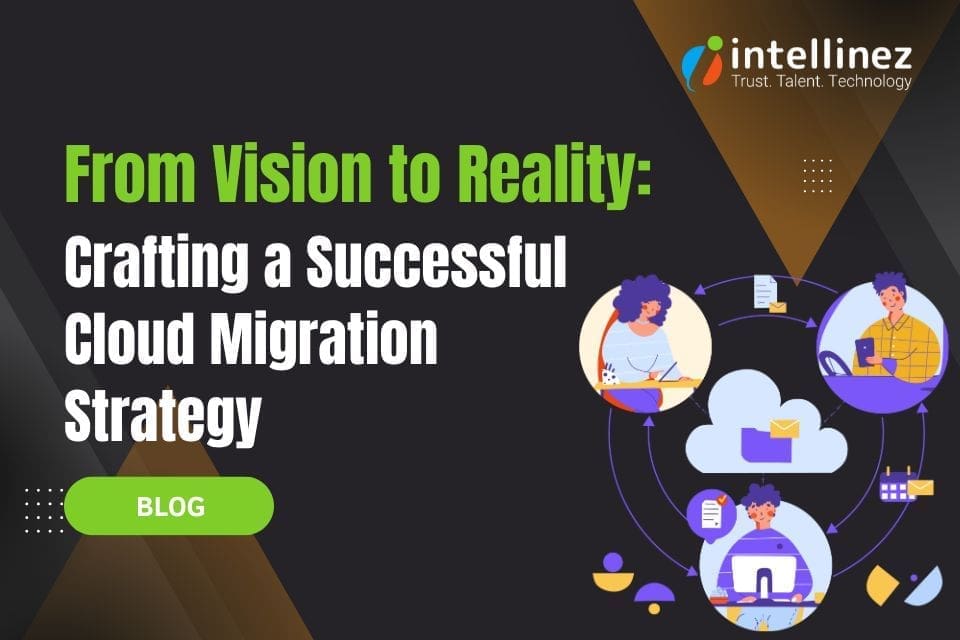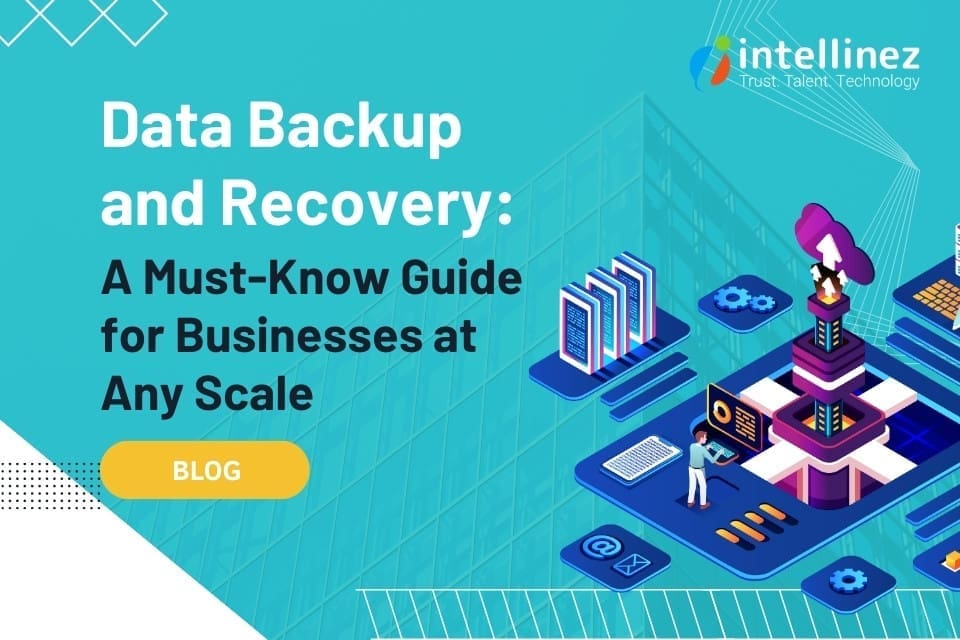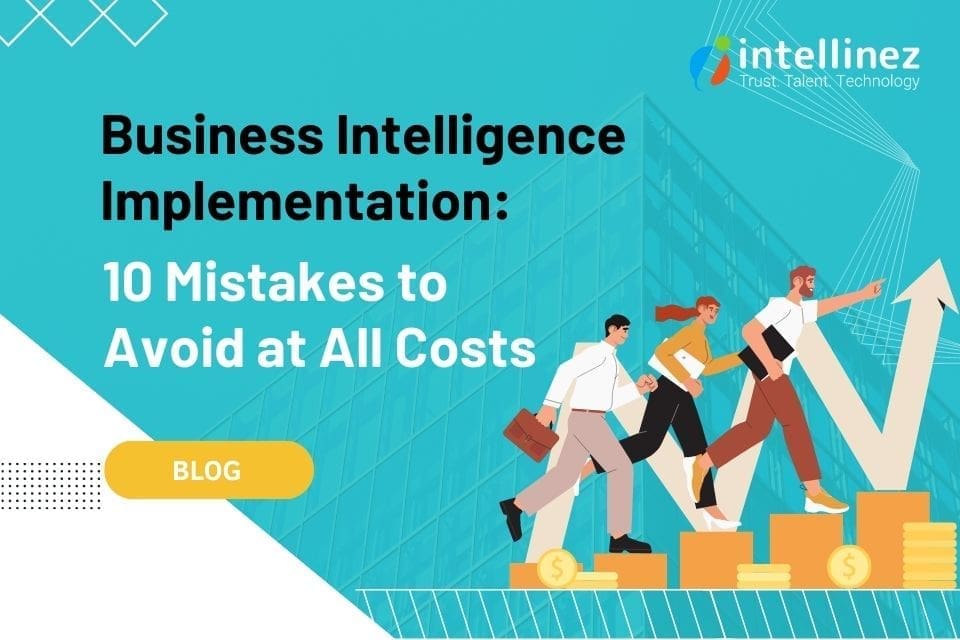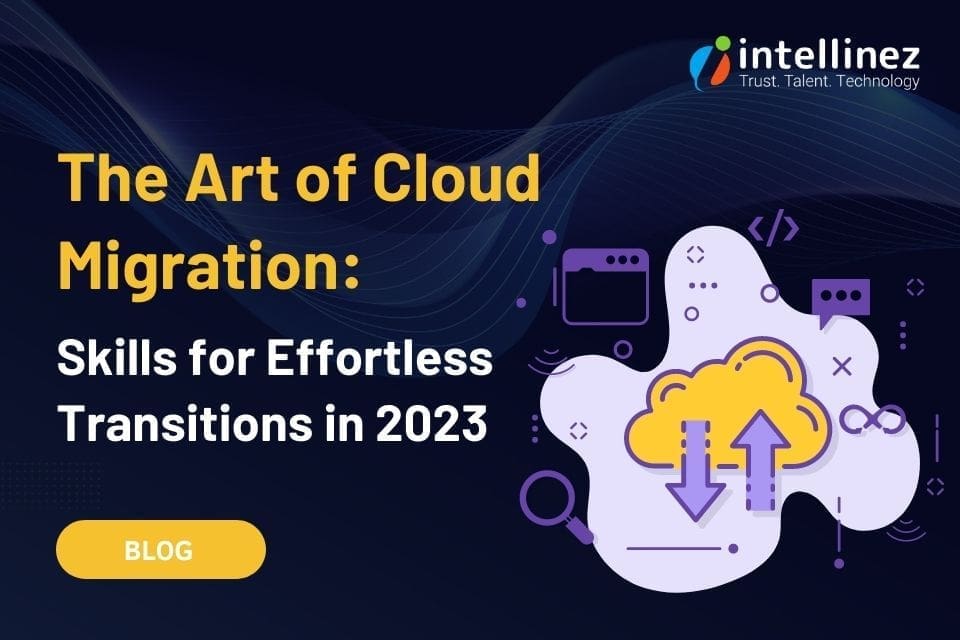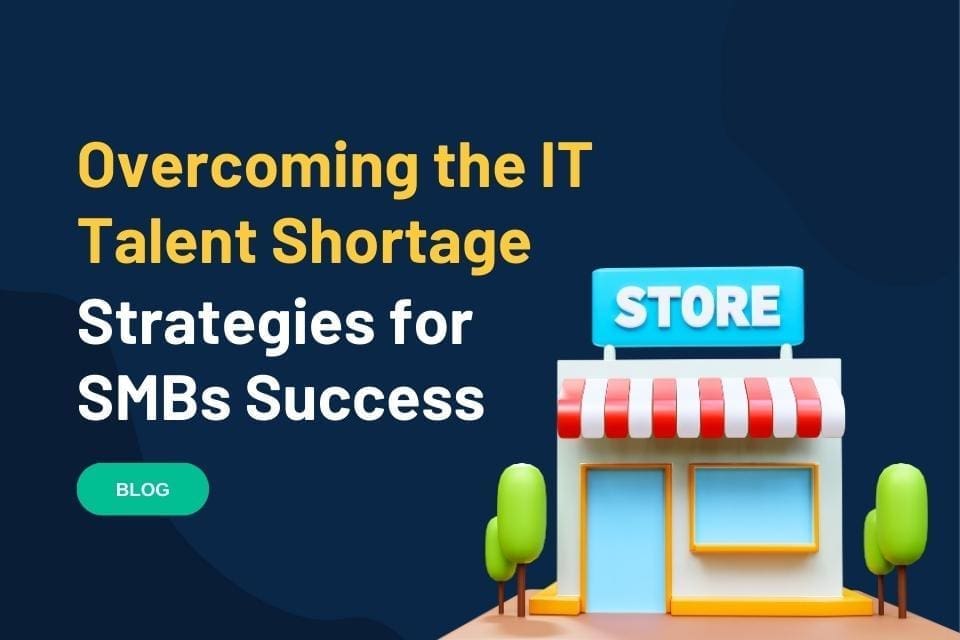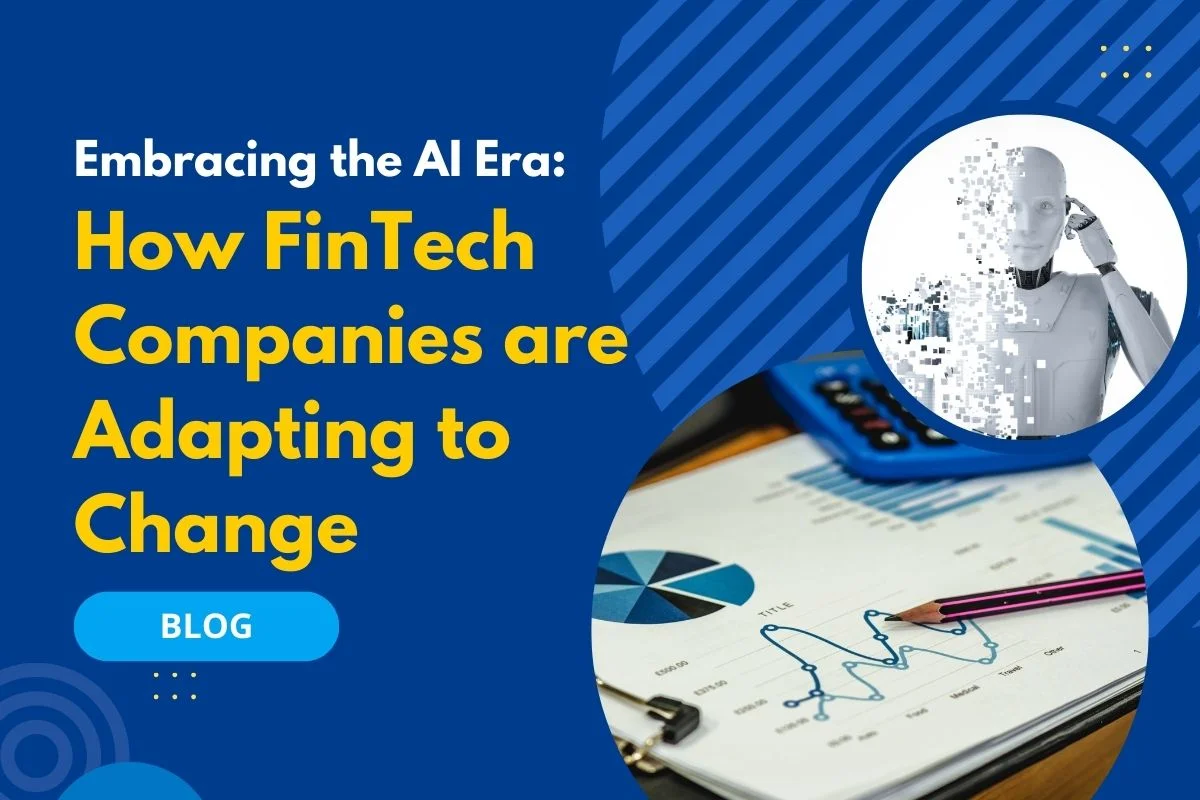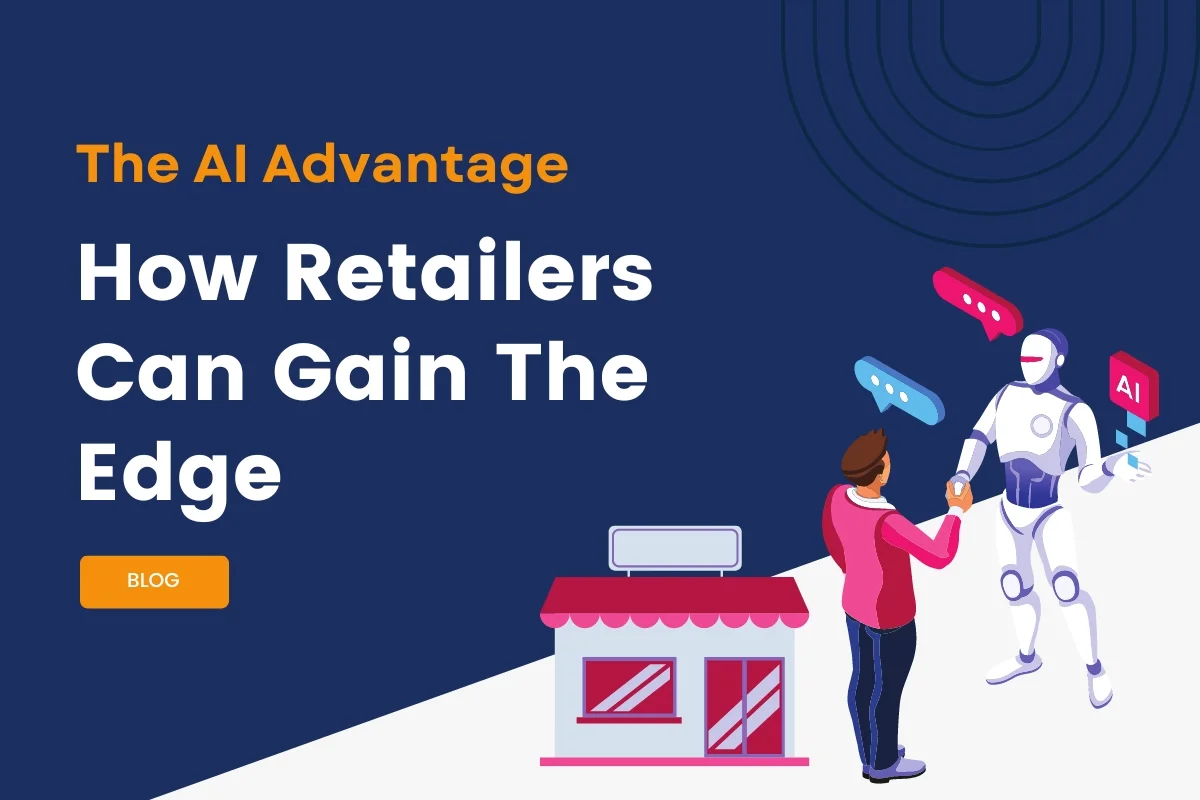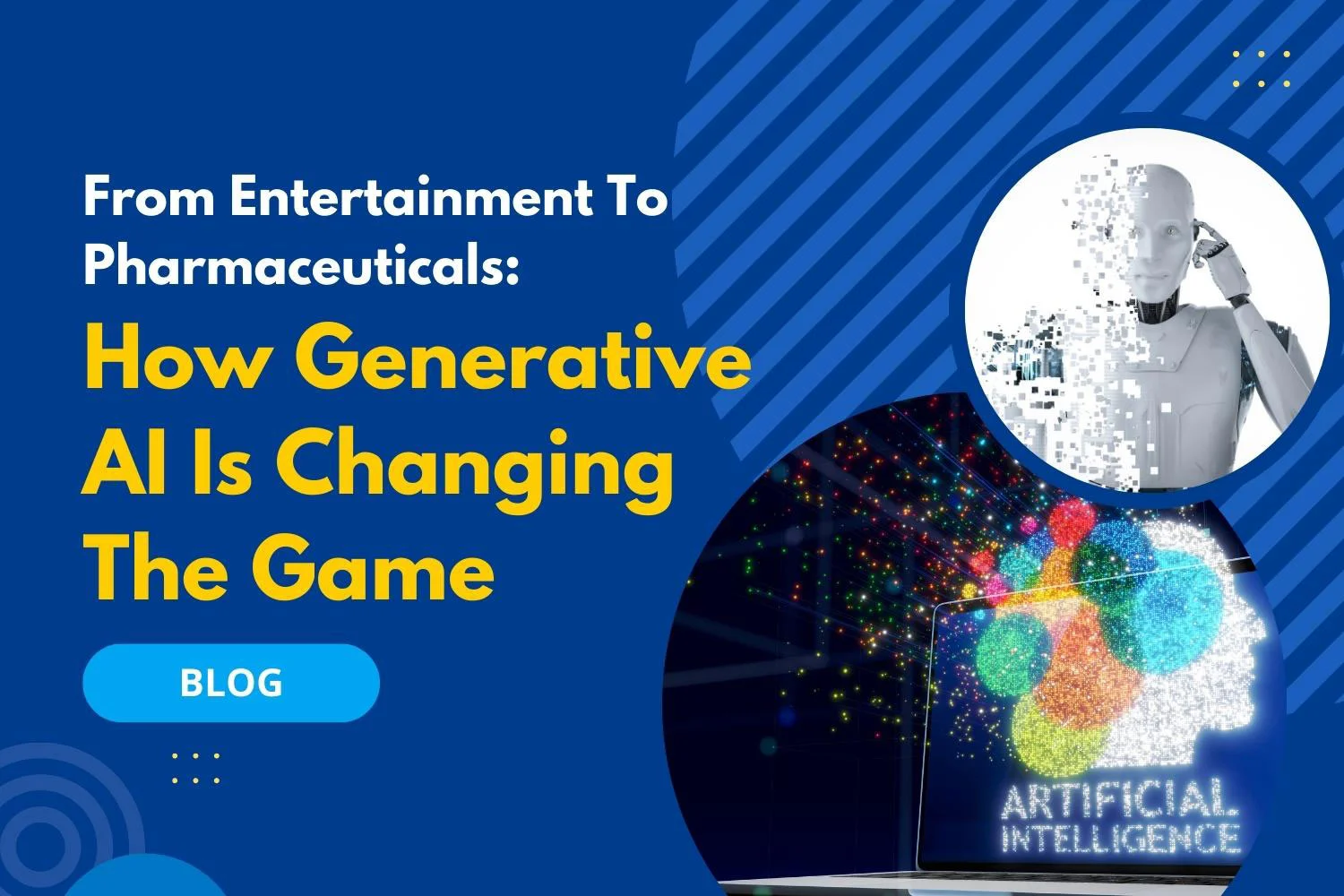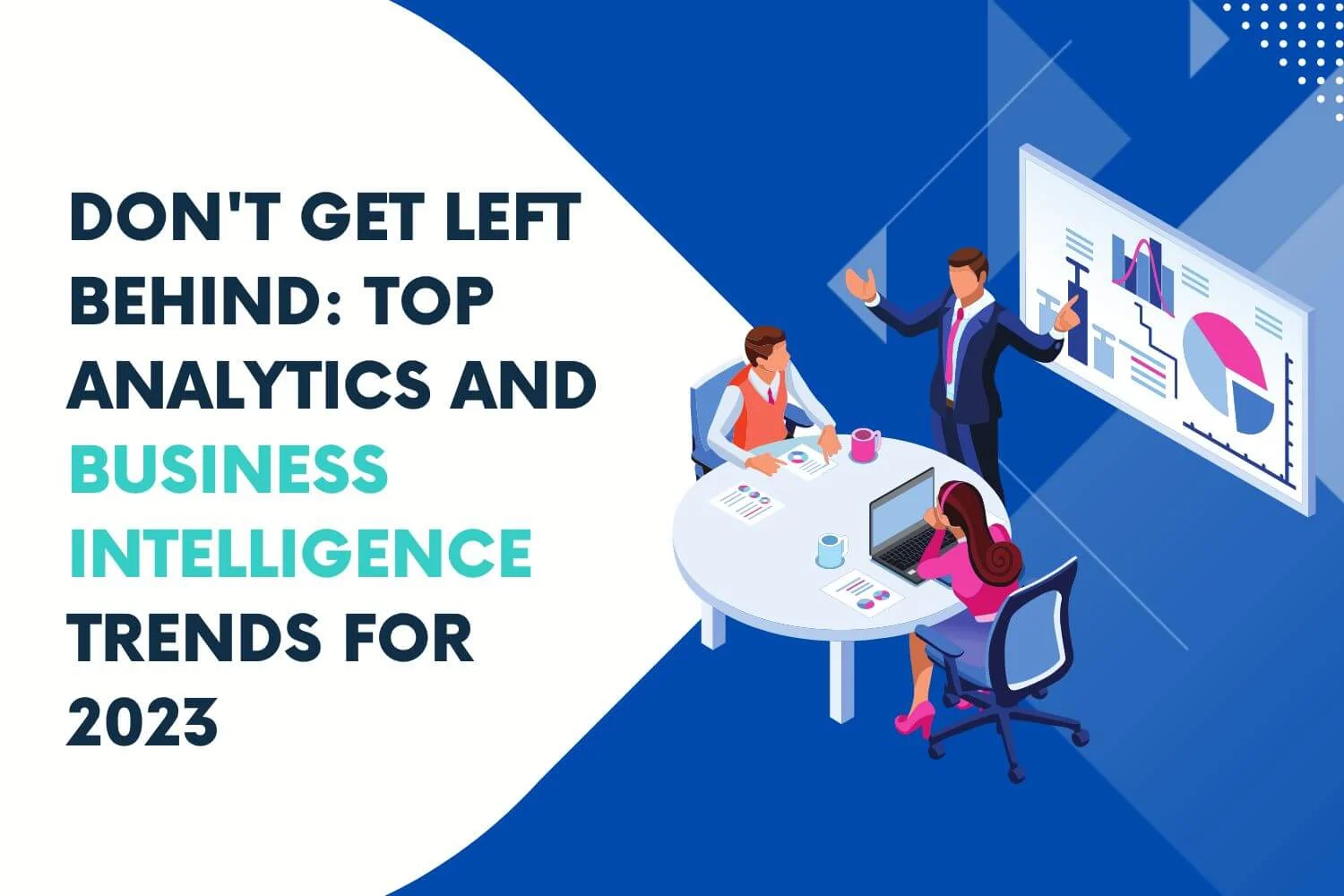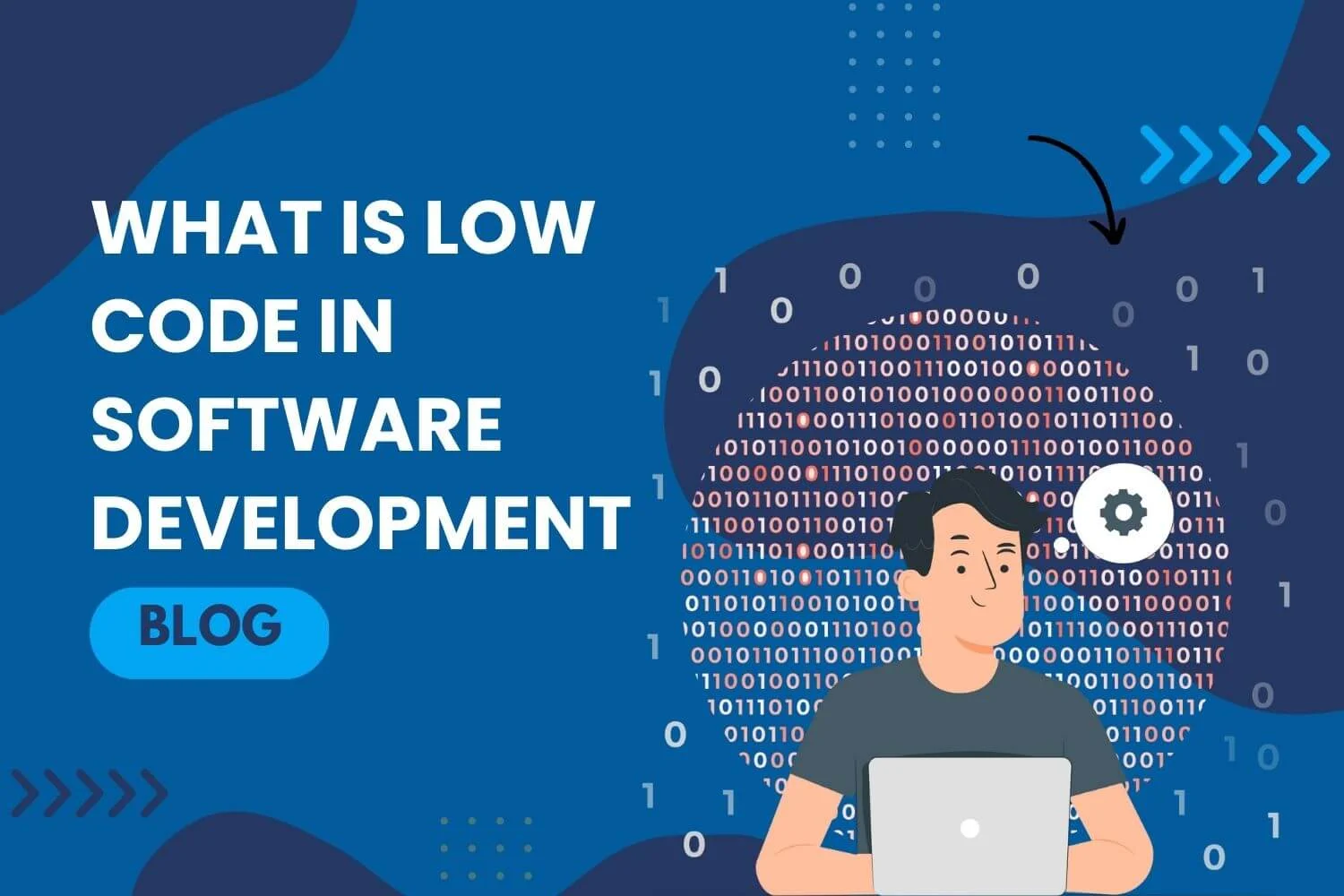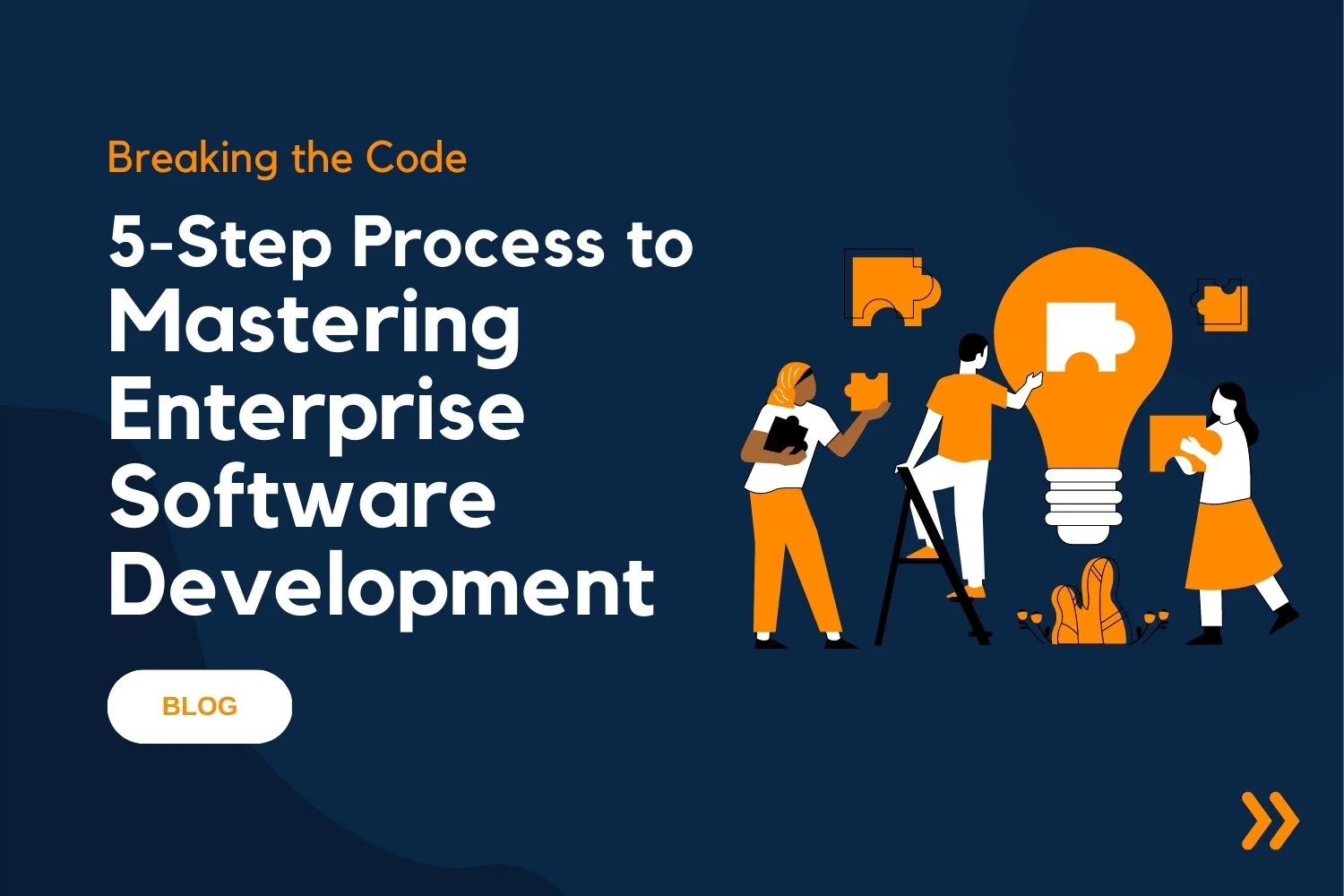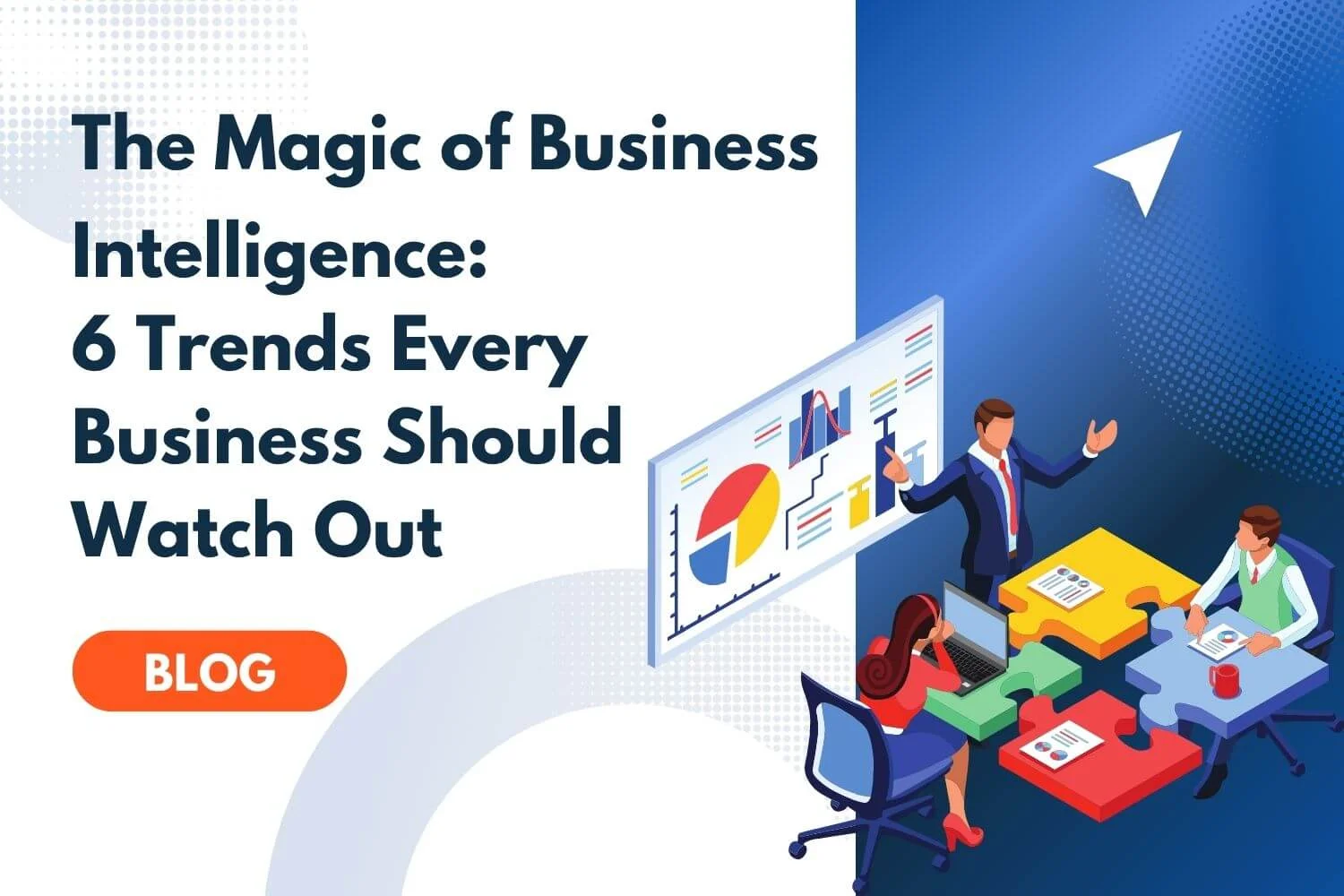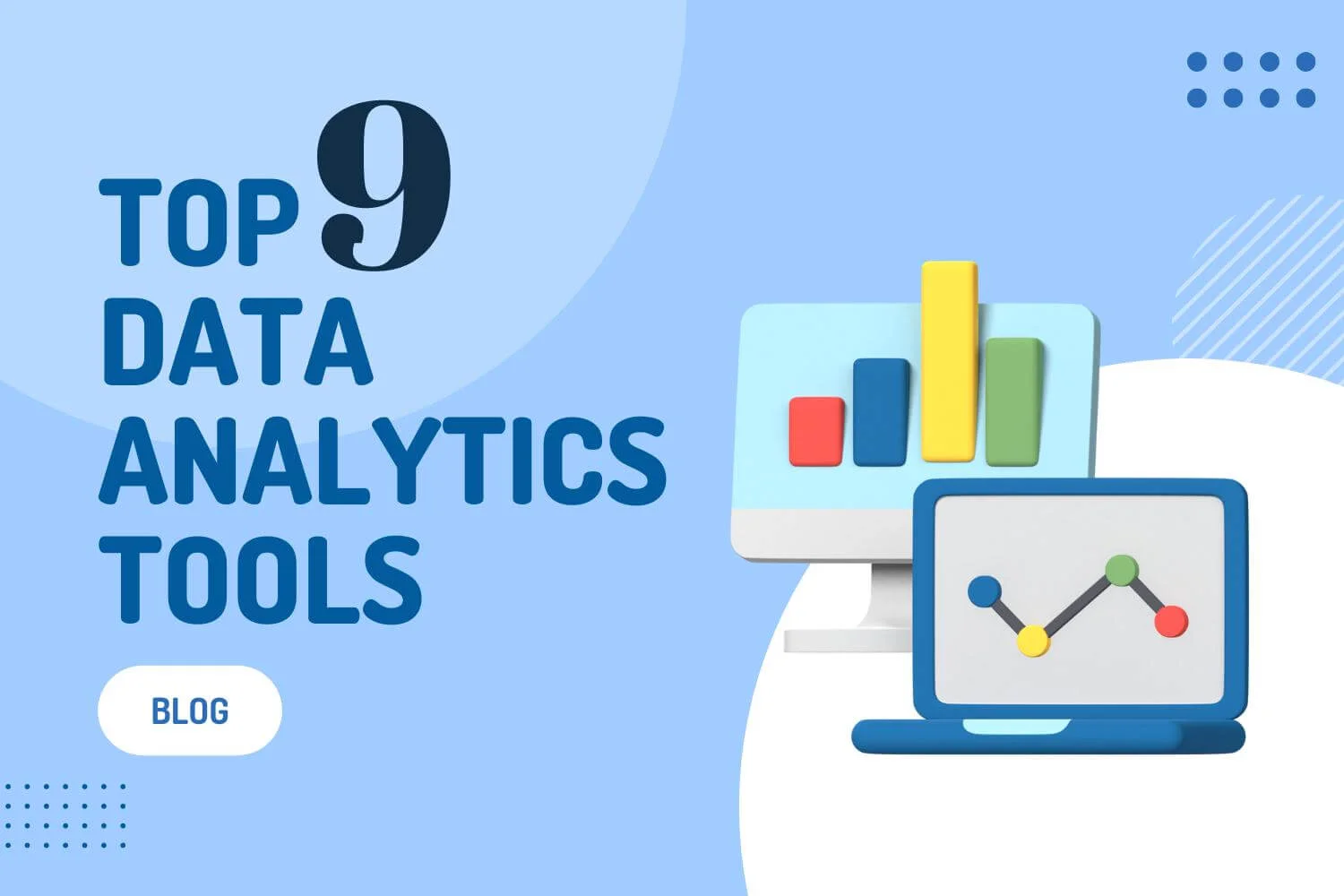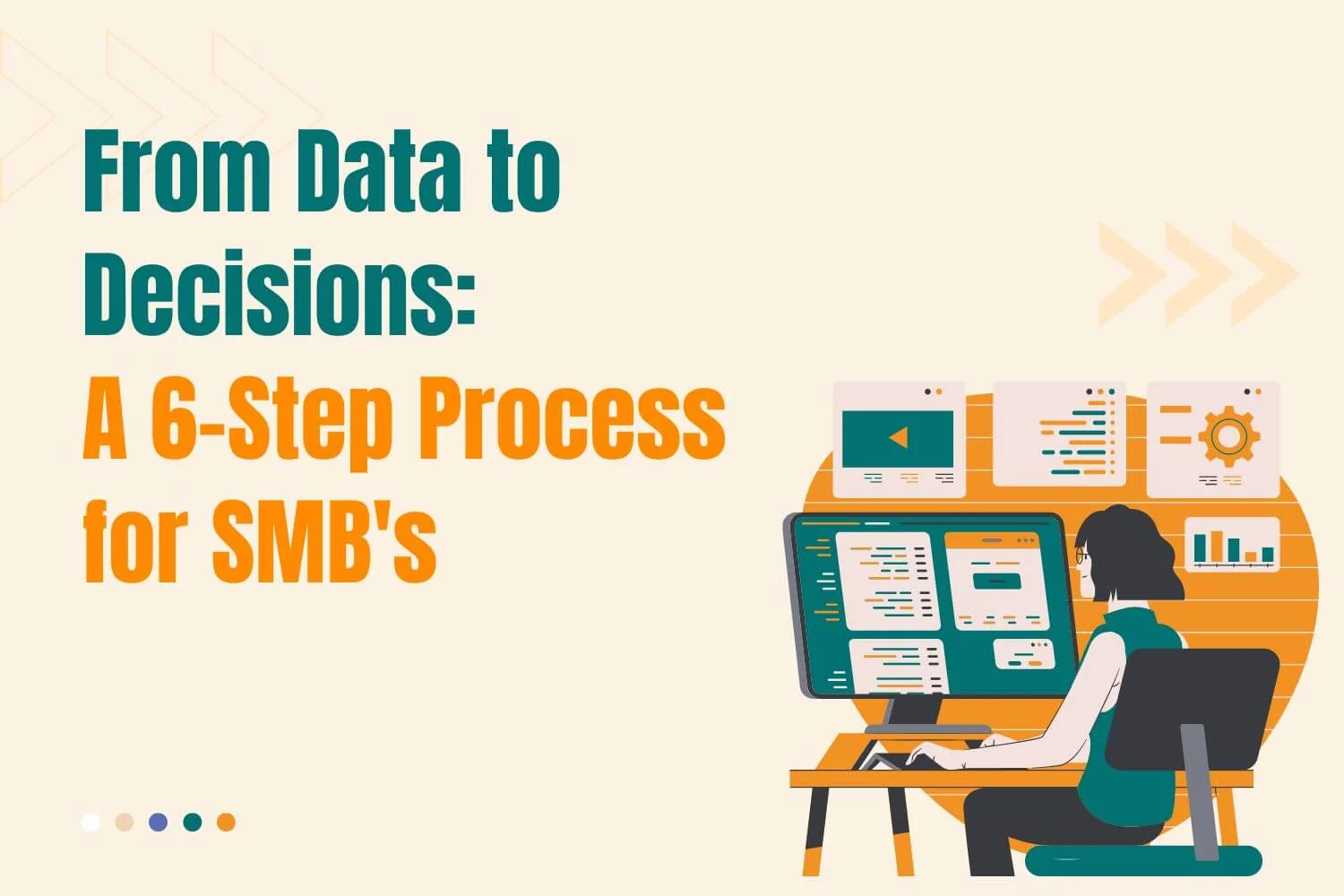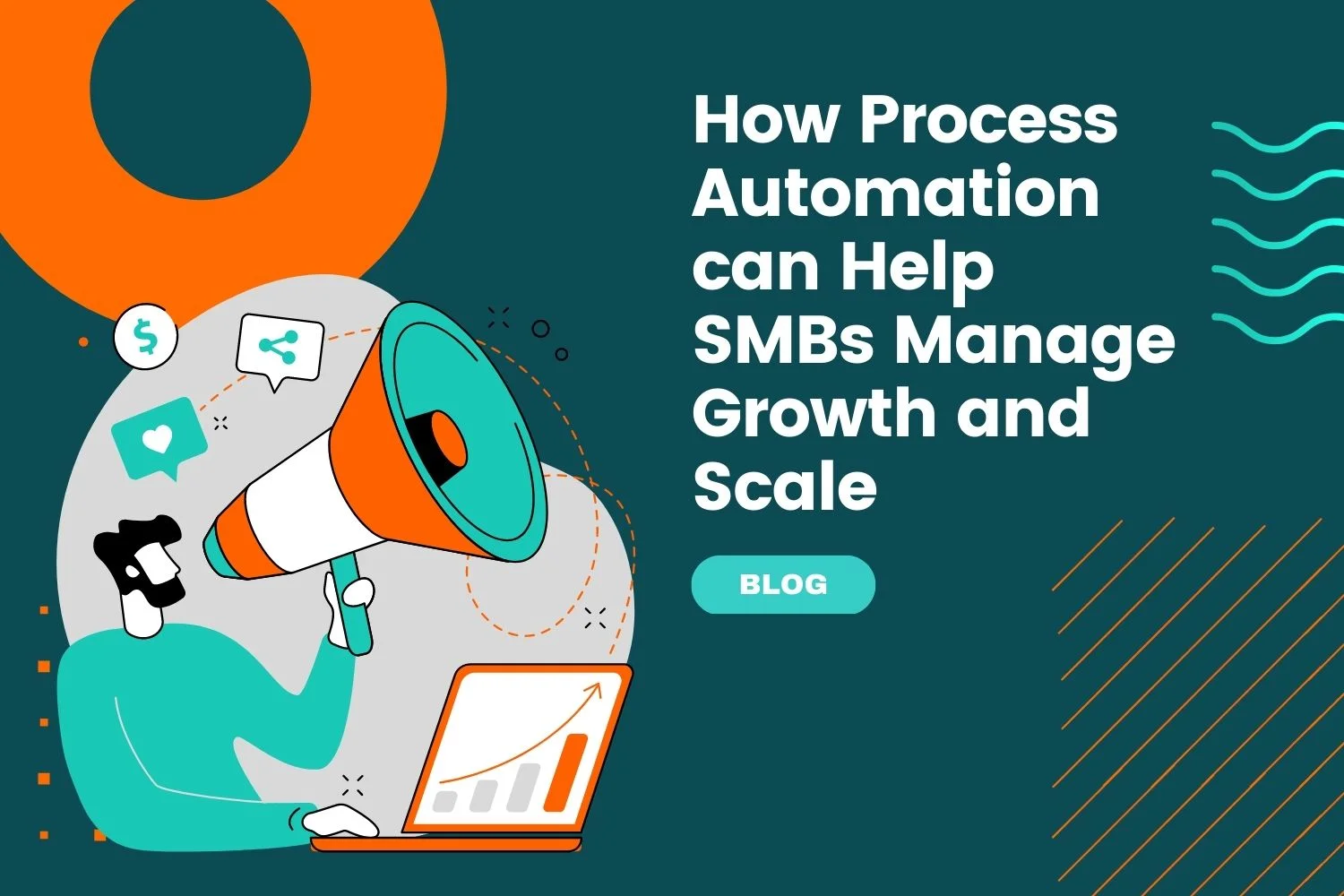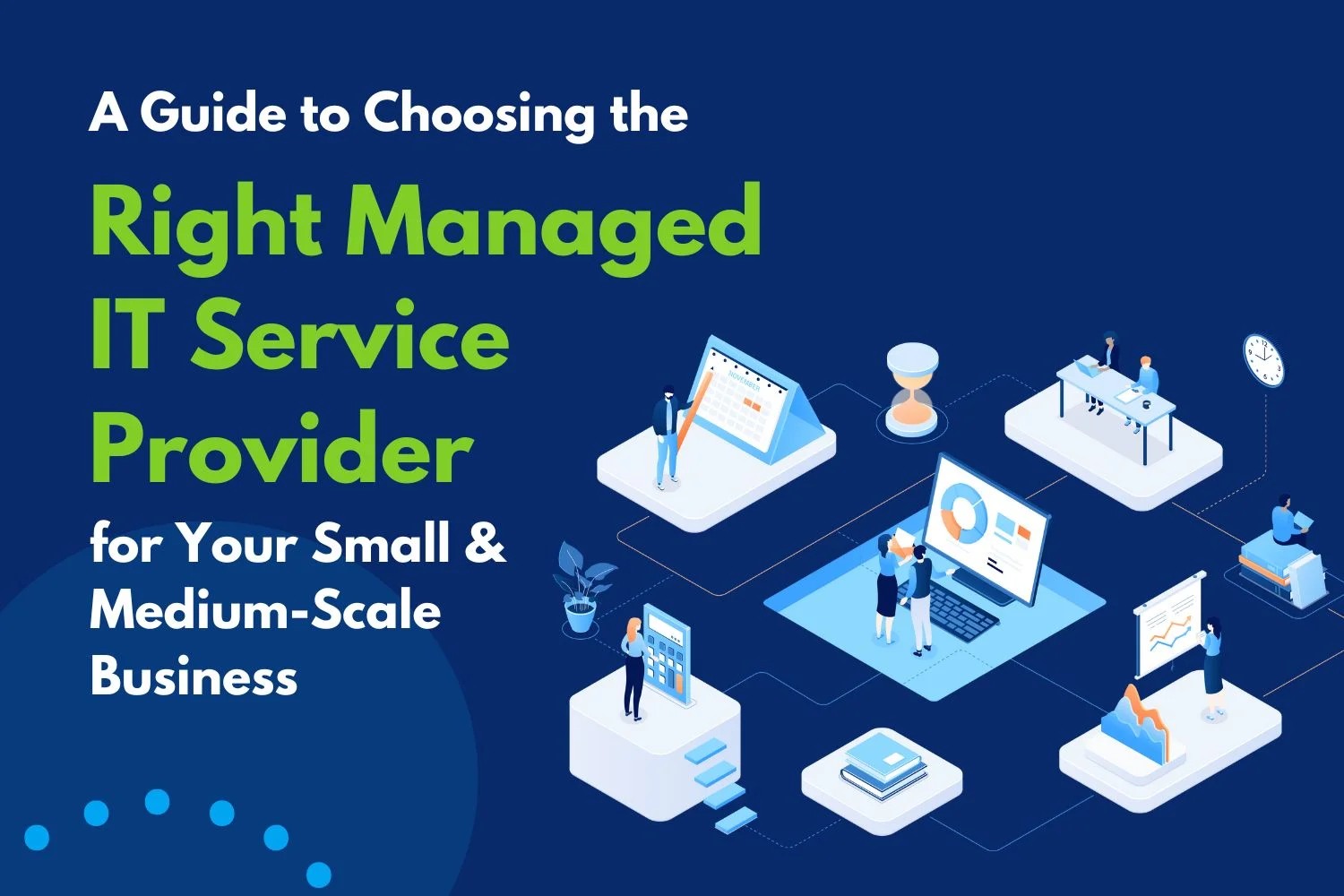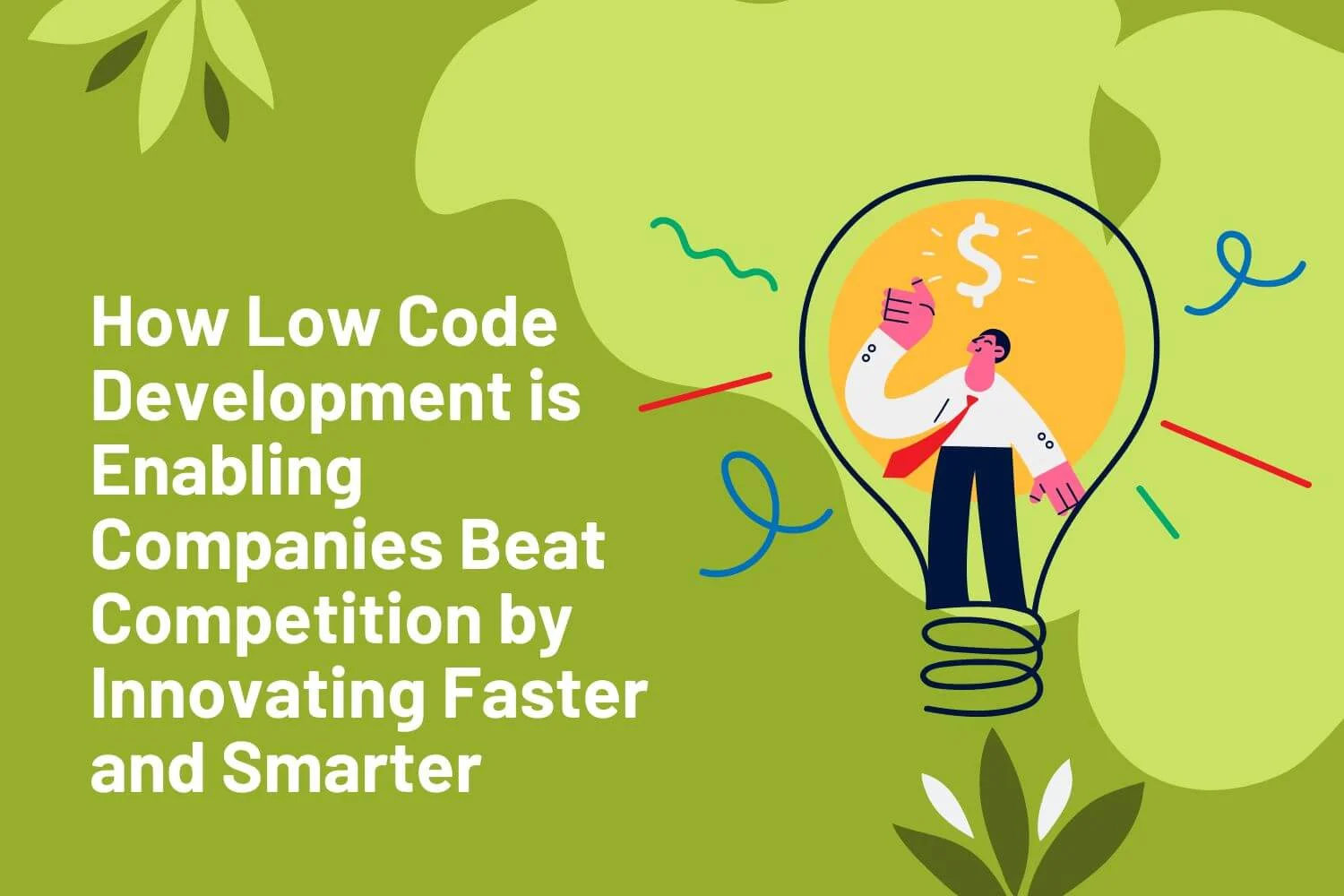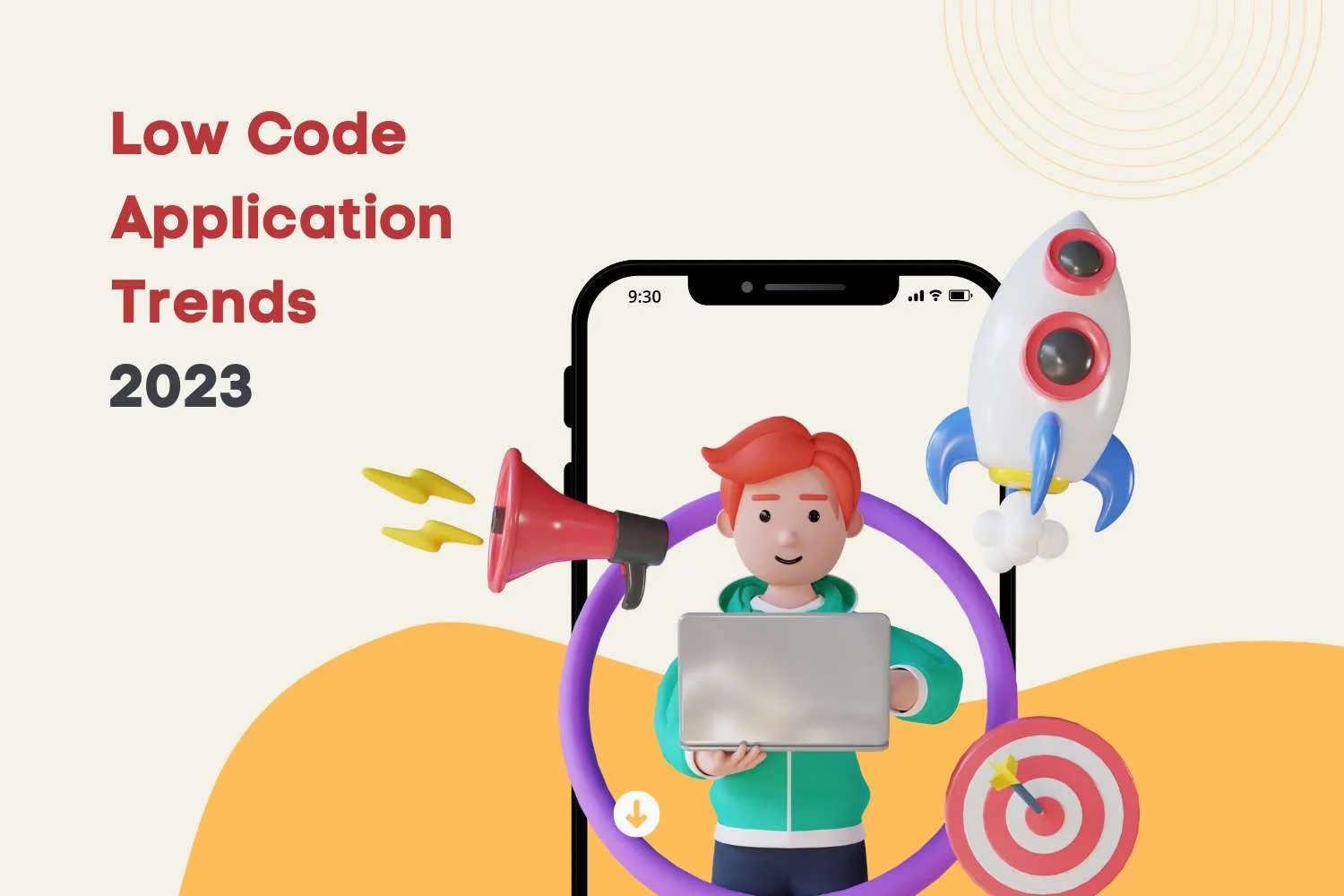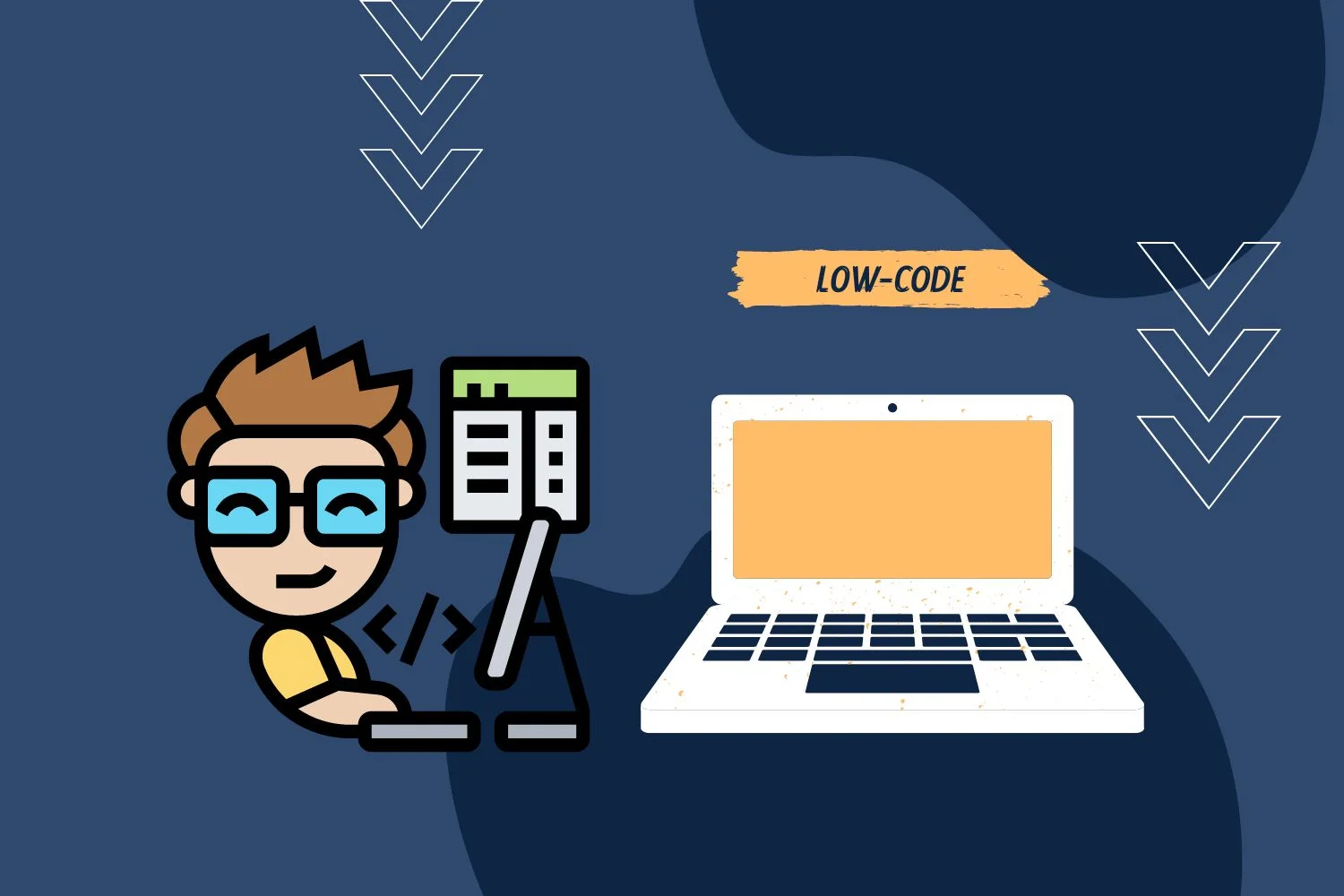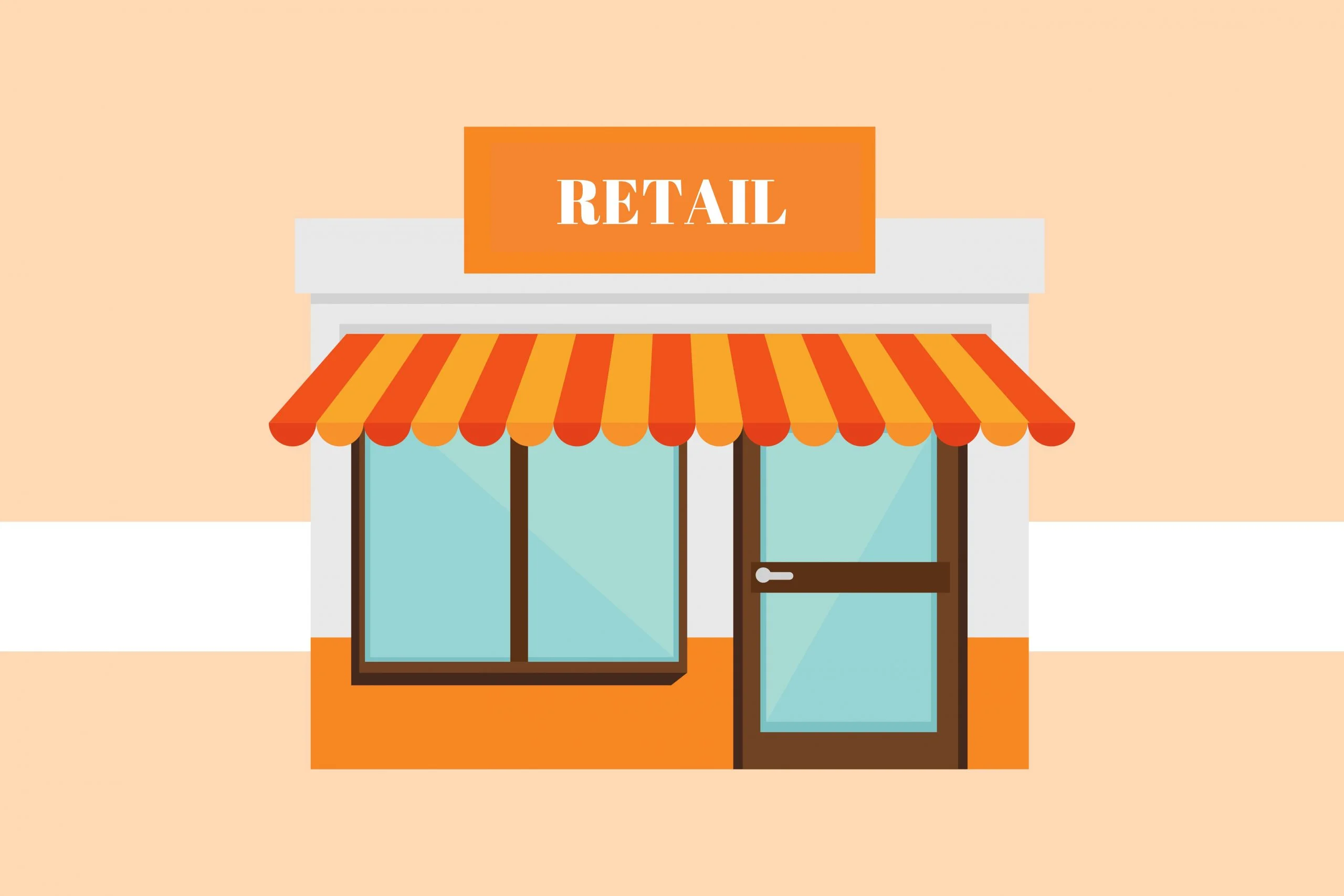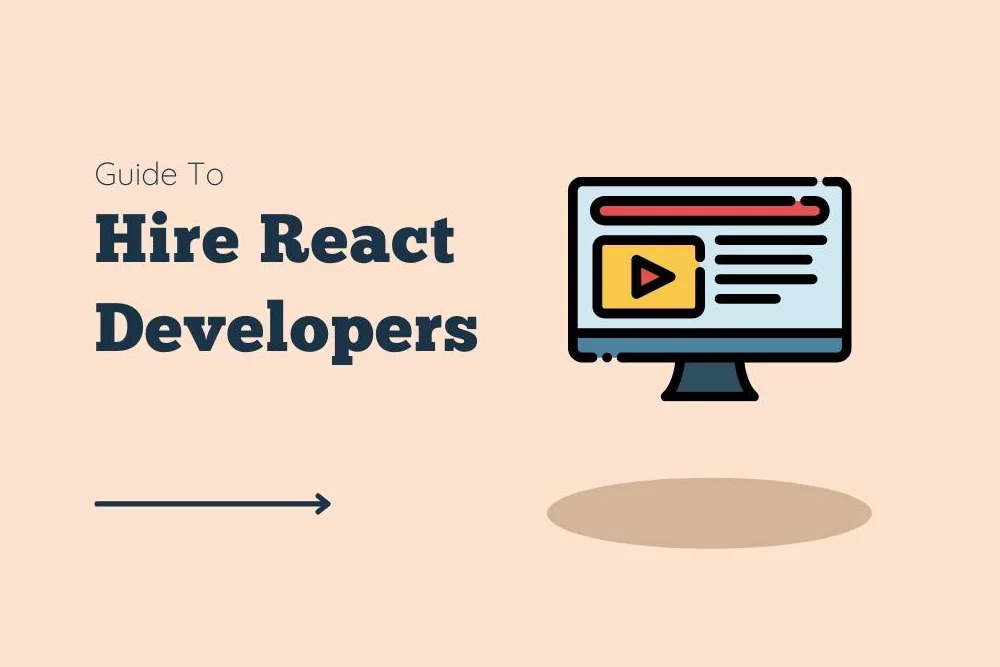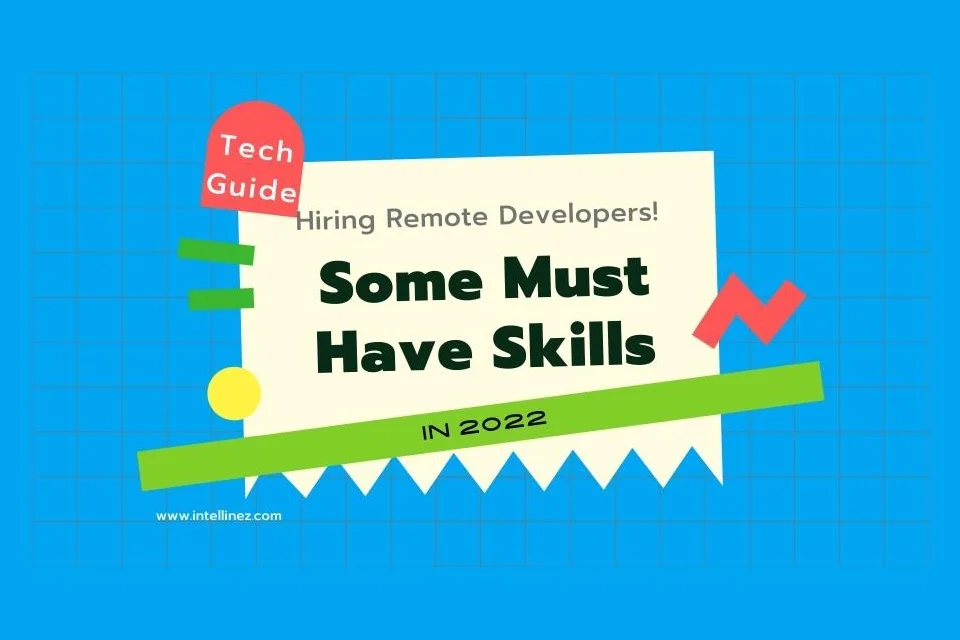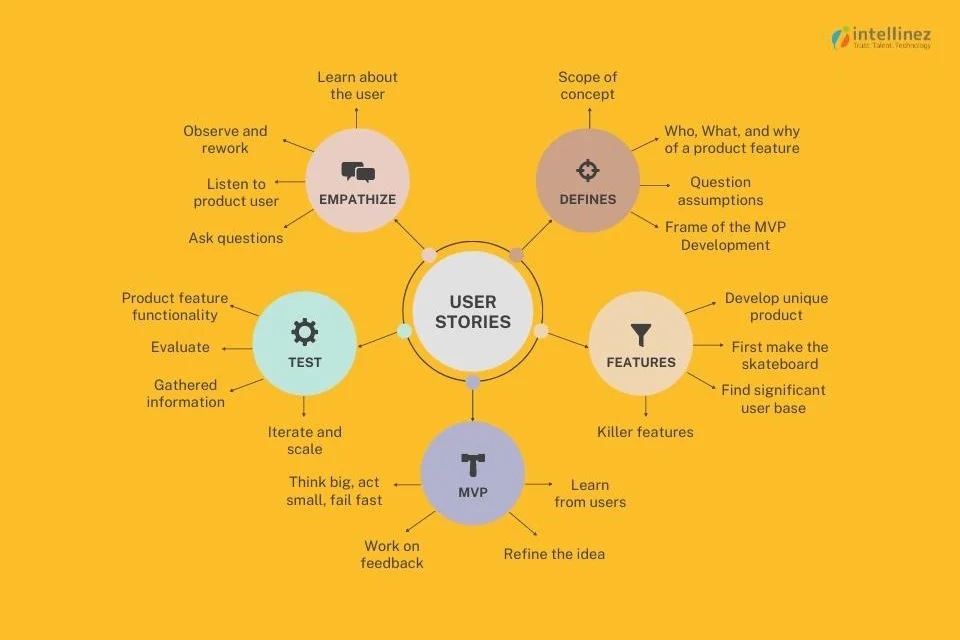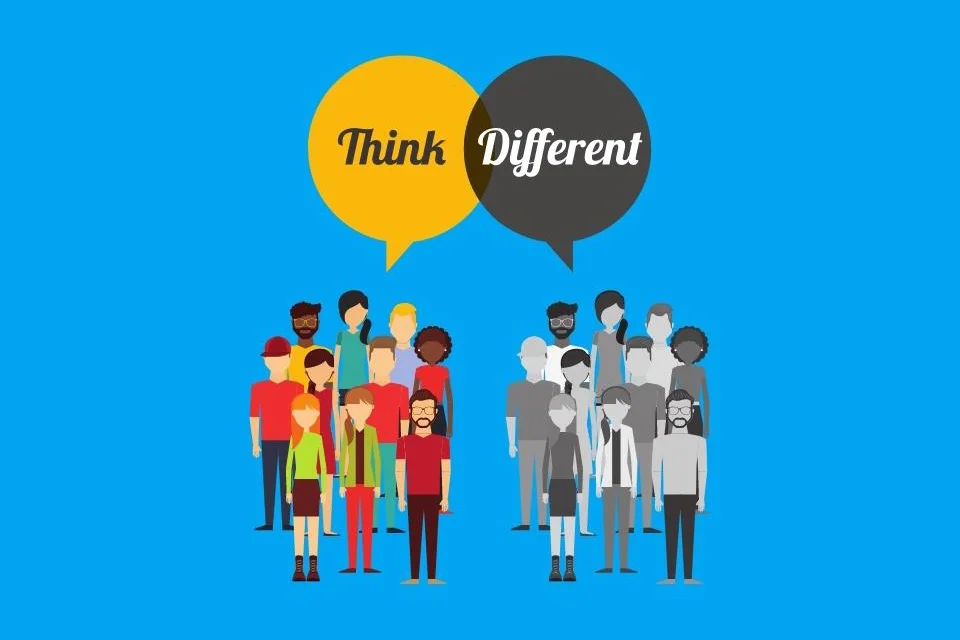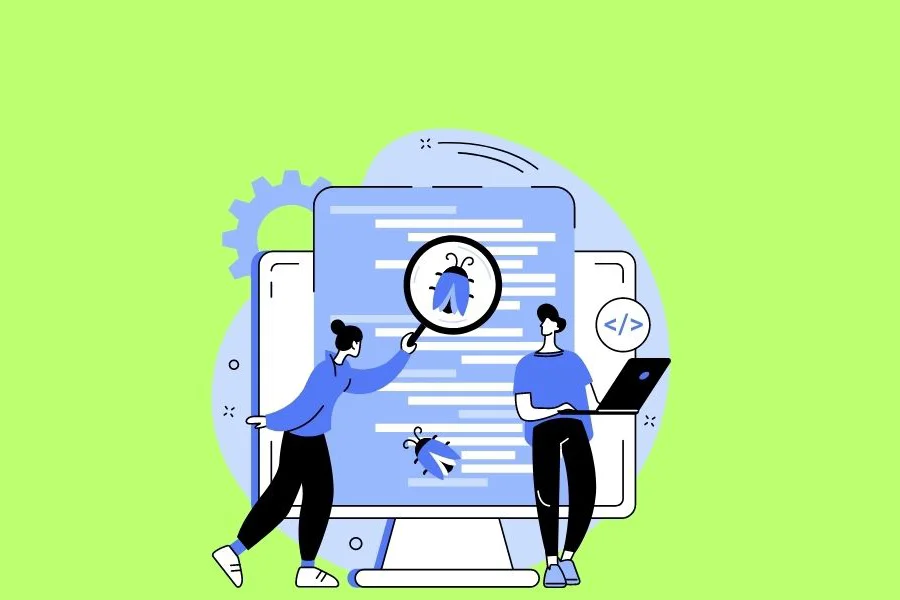Table of Contents
- Why Is AI Needed In The Retail Industry?
- Brands Already Implementing AI
- How AI Will Affect The Future Of The Retail Industry?
- Conclusion
Retail businesses are turning to artificial intelligence (AI) to boost profitability and streamline operations. The AI trends in retail is expected to grow from $5 billion to over $31 billion by 2028 market. While concerns about job losses exist, AI is more likely to transform cashier roles rather than eliminate them.
By automating tasks like inventory tracking, AI allows cashiers to focus on complex customer interactions. AI also enables smart staffing and replenishment decisions, reducing costs and improving sales. As technology advances, retail organizations are exploring various AI applications to stay competitive in the evolving industry.
Experts from Team Intellinez have compiled all the required information on how artificial intelligence is reshaping the future of shopping. Continue reading to learn more.
Why is AI Needed in the Retail Industry?
In addition to the immense business intelligence and remarkable speed they offer, the digital revolution and ai trends in retail industry is unequivocally distinguishing prosperous enterprises from unsuccessful ones. Artificial intelligence in retail bestows numerous advantages, but let’s focus on five key benefits that retailers can rely on.
To Engage Customers
In an era where innovative competitors offer shoppers immersive shopping experiences, conventional retailers must captivate customers through personalized and relevant interactions that are distinctive and inspiring across all touchpoints.
To Deliver Thrilling Experiences
To sustain interest, retailers must set their products apart and offer consumers enticing services and experiences. By leveraging predictive analytics to gain comprehensive market insights, retailers can proactively lead with innovation instead of being reactive to shifts in the industry.
To Unify Disparate Data for Actionable Insights
With a multitude of information pouring in from various aspects of their business, including supply chain, stores, and consumer data, retailers face the challenge of distilling this data to create consumer-focused strategies. By effectively filtering and analyzing these diverse data sources, Intellinez can help retailers extract valuable insights to drive actionable decision-making.
To Synchronize Offline & Online Retail
Unifying digital and physical shopping channels minimizes friction for customers, enhances the seamless shopping experience, and reduces operational inefficiencies caused by treating them as separate entities with distinct approaches.
To Support Agile Logistics Networks
Retailers must reconsider their traditional supply chains to meet the diverse demands of customers, ranging from mainstream to niche preferences. By embracing adaptable and flexible systems, they can quickly respond to changing consumer behaviors and ensure smooth order fulfilment.
Brands Already Implementing AI
AI is reshaping the retail experience with personalization, automation, and efficiency. Here are some powerful examples of how AI improves the traditional retail journey.
Lowes Utilizes Robots for Item Location
To assist customers in navigating their hardware stores and finding the items they need, Lowes has introduced the LoweBot. These helpful robots roam around the store, interacting with customers and asking simple questions to determine their requirements. By providing directions, maps, and sharing specialized knowledge, the LoweBots ensure that customers can easily locate products. Additionally, they continuously monitor inventory, enabling the store to stay informed about items that require restocking.
Walgreens Harnesses AI to Monitor Flu Spread
Addressing the discomfort and potential dangers associated with the flu, Walgreens leverages AI technology to track its spread. By analyzing data from over 8,000 locations and the number of anti-viral prescriptions filled,
Walgreens creates an online, interactive map that provides customers with valuable information about the severity of the flu in their area.
This map not only helps individuals take proactive measures to safeguard their families’ health but also assists Walgreens in stocking the appropriate inventory of flu-related products in affected regions. AI empowers both customers and the store itself.
Sephora Simplifies Makeup Selection
Sephora revolutionizes the process of finding the perfect makeup shade by introducing innovative technologies in their stores. Through Color IQ, customers can discover their ideal foundation and concealer shades without applying anything to their face.
Similarly, Lip IQ offers personalized recommendations for the perfect lipstick shade. This advancement alleviates the stress and expense associated with the trial-and-error method of shade selection, providing valuable assistance to customers.
Taco Bell Facilitates On-the-Go Taco Ordering
When taco cravings strike, waiting is not an option. Taco Bell revolutionized the industry by introducing AI-powered food ordering. Through the Tacobot integrated with Slack, customers can conveniently text or voice their orders.
The bot accommodates customized requests and even streamlines large group orders. True to Taco Bell’s style, the bot responds with clever remarks after each order, adding a touch of fun to the experience.
Macy’s Enhances In-Store Experience with AI
Ever found yourself lost in a department store, unsure of where to locate the item you need? Macy’s introduces the On Call app, customized for each individual store, to address this challenge.
Customers can access the app while in-store and engage in a chat with an AI bot. The bot provides directions to specific items and checks item availability. It even has the capability to detect customer frustration and alert a human employee to provide assistance promptly.
Walmart Implements Shelf-Scanning Robots
As one of the world’s largest retail chains, Walmart is leveraging robots to optimize their extensive store aisles. In selected stores, Walmart is piloting shelf-scanning robots that diligently monitor inventory.
These robots scan shelves to identify missing items, restocking requirements, and necessary price tag adjustments. By offloading this task to robots, human employees are liberated to spend more time assisting customers and ensuring shelves are never left empty.
Amazon Revolutionizes Retail with AI-Driven Cashierless Stores
No discussion of AI in retail would be complete without mentioning Amazon and its groundbreaking Amazon Go stores. These stores provide customers with a frictionless shopping experience by eliminating the need for cashiers.
Customers can simply walk into the store, pick the items they want, and leave without going through a traditional checkout process. Sophisticated sensors and cameras placed throughout the store track the items customers select, and their Amazon account is automatically charged accordingly.
AI plays a pivotal role in creating a swift and seamless shopping experience, sparing customers from waiting in long lines.
Uniqlo Enhances the Shopping Experience with AI Mind Reading
Uniqlo, a clothing store at the forefront of innovation, utilizes the power of science and AI to offer a truly unique in-store experience. In select locations, Uniqlo introduces UMood kiosks powered by AI.
These kiosks display a range of products and measure customers’ reactions to colors and styles through their neurotransmitters. Based on the individual’s responses, the kiosk then provides personalized product recommendations.
The fascinating aspect is that customers don’t even need to press a button; the system interprets their brain signals to gauge their preferences for each item.
Olay Harnesses AI for Customized Skincare
Olay leverages the power of AI to provide personalized skincare solutions, eliminating the need for a dermatologist visit. Through Olay’s Skin Advisor, customers can simply capture a selfie of their bare face, and the AI-powered app accurately determines the skin’s actual age.
By evaluating skin health, the app offers tailored recommendations for addressing specific concerns and suggests a personalized skincare regimen to achieve optimal results.
Zara Enhances Order Pickup Efficiency with Robotics
To cater to the growing trend of online purchases with in-store pickup, fashion retailer Zara has introduced robots to streamline the process. Upon arrival at the store, customers input a pickup code that sets the robot in motion within the warehouse.
Once located, the robot swiftly delivers the order through a convenient drop box. This efficient system ensures quick and hassle-free order retrieval for customers.
Starbucks Simplifies Coffee Ordering with a Chatbot
Starbucks further simplifies the morning routine with its AI-powered voice ordering system. Through the My Starbucks Barista app, customers can effortlessly chat with the virtual barista, placing their orders using either voice or text.
When customers reach their local Starbucks, their order will be prepared and waiting for them, allowing them to bypass the line and save valuable time.
American Eagle Introduces Next-Generation Fitting Rooms
American Eagle is reimagining the traditional fitting room experience by introducing interactive dressing rooms of the future. Customers can easily scan the items they wish to try on and instantly view their availability in-store.
If assistance is needed, store employees receive notifications and can promptly deliver the requested items to the fitting room. The technology even goes a step further by providing personalized product recommendations based on the customer’s selection, enhancing the overall shopping experience.
How AI Will Affect the Future of the Retail Industry?
According to Contrive Datum Insights, the AI market in the Retail industry reached USD 8.41 billion in 2022 and is projected to grow to USD 45.74 billion by 2030, with a CAGR of 18.45%.
This expansion is driven by increased Internet and smart device usage, along with a growing demand for surveillance and monitoring in physical stores. Government initiatives promoting digitization also contribute to the market growth.
Personalized shopping experiences powered by AI, such as tailored product recommendations based on browsing and purchase history, will become more popular. Additionally, there is a rising focus on consumer ethics, where AI enables tracking and monitoring of supply chains for ethical sourcing.
The AI/ML department of Intellinez Systems is ready to provide customized AI solutions to keep you ahead of the competition, adapting to market changes.
Conclusion
Utilize AI and ML to power your retail business growth, outperform competitors, and stay relevant. Implementing these technologies brings benefits like automated processes, improved insights, and increased customer engagement, leading to revenue growth.
AI-driven solutions such as chatbots, visual search, and voice search in retail and eCommerce can drive significant business expansion. Embrace these cutting-edge tools to unlock your retail enterprise’s full potential.
How Intellinez Can Assist You in Your AI Retail Journey
Intellinez offers limitless advantages for your retail business through the implementation of artificial intelligence. Our experienced team will provide intelligent AI-driven solutions, improving your business’s efficiency and customer experiences.
Discover how Intellinez adds value to retailers and consult our experts for top-notch AI services. Trust us to address all your needs and challenges in the retail market.
- slot pulsa 5000
- slot deposit 5000
- slot deposit pulsa
- https://ksquare99.com/culture.html
- https://intersmart.ae/our-works/
- https://astrologerparduman.com/blogs/
- https://gluesys.com/
- https://www.intersmartsolution.com/erp-solutions/
- https://cvworld.in/seo-services/
- https://www.silversea-media.my/about-us/
- https://www.ausfitprojects.com.au/testimonials/
- https://albarakatrust.org.uk/water-donation-for-balochistan/










































![A Comprehensive Guide to AWS SaaS Architecture [Diagram Included] 87 Aws SaaS Architecture](http://www.intellinez.com/wp-content/uploads/2024/08/Title-image.jpg)










